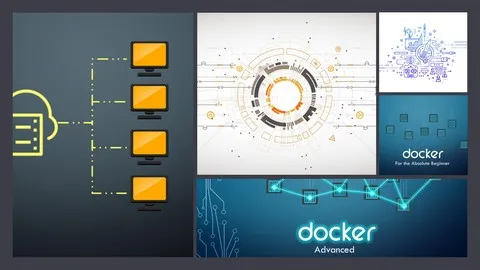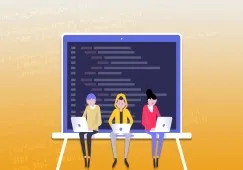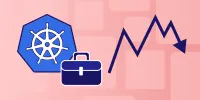
DevOps - The Pre-Requisite Course 
This comprehensive course provides an introduction to DevOps concepts for absolute beginners, equipping them with the skills necessary to become a successful DevOps practitioner. ▼
ADVERTISEMENT
Course Feature
![]() Cost:
Cost:
Free
![]() Provider:
Provider:
Udemy
![]() Certificate:
Certificate:
Paid Certification
![]() Language:
Language:
English
![]() Start Date:
Start Date:
Self Paced
Course Overview
❗The content presented here is sourced directly from Udemy platform. For comprehensive course details, including enrollment information, simply click on the 'Go to class' link on our website.
Updated in [April 29th, 2023]
This course provides an introduction to DevOps and Cloud technologies. It is designed to help students develop the skills needed to begin their DevOps and Cloud journey. The course covers two prominent DevOps tools: orchestration and containers. Students will learn how to create a home-lab environment and a cloud-based lab environment using AWS/GCP. They will also gain an understanding of Docker, Kubernetes, and OpenShift Containers, and how to use Ansible, Puppet, and Chef to orchestrate tasks. By the end of the course, students will have the knowledge and skills to begin their DevOps and Cloud journey.
[Applications]
After completing this course, students will have the skills and knowledge to apply DevOps and Cloud technologies in their own projects. They will be able to create a home-lab environment and a cloud-based lab environment using AWS/GCP. They will also be able to use Docker, Kubernetes, and OpenShift Containers to orchestrate tasks. Finally, they will be able to use Ansible, Puppet, and Chef to automate tasks.
[Career Paths]
1. DevOps Engineer: DevOps Engineers are responsible for the development, deployment, and maintenance of software systems. They work closely with developers, system administrators, and other IT professionals to ensure that software is released on time and meets quality standards. They also use automation tools to streamline processes and improve efficiency. As the demand for DevOps Engineers continues to grow, the need for professionals with the right skills and experience is becoming increasingly important.
2. Cloud Engineer: Cloud Engineers are responsible for the design, implementation, and maintenance of cloud-based systems. They work with cloud providers to ensure that applications and services are running optimally and securely. They also use automation tools to automate tasks and improve efficiency. As cloud computing continues to grow in popularity, the need for Cloud Engineers with the right skills and experience is becoming increasingly important.
3. System Administrator: System Administrators are responsible for the installation, configuration, and maintenance of computer systems. They work with hardware and software vendors to ensure that systems are running optimally and securely. They also use automation tools to automate tasks and improve efficiency. As the demand for System Administrators continues to grow, the need for professionals with the right skills and experience is becoming increasingly important.
4. Security Engineer: Security Engineers are responsible for the design, implementation, and maintenance of security systems. They work with security vendors to ensure that systems are secure and compliant with industry standards. They also use automation tools to automate tasks and improve efficiency. As the demand for Security Engineers continues to grow, the need for professionals with the right skills and experience is becoming increasingly important.
[Education Paths]
1. Bachelor of Science in Computer Science: This degree path provides a comprehensive overview of computer science fundamentals, including programming, software engineering, and systems design. It also covers topics such as artificial intelligence, machine learning, and data science. As DevOps continues to become more popular, this degree path is becoming increasingly important for those looking to pursue a career in the field.
2. Bachelor of Science in Information Technology: This degree path focuses on the application of technology to solve business problems. It covers topics such as network security, database management, and software development. As DevOps continues to become more popular, this degree path is becoming increasingly important for those looking to pursue a career in the field.
3. Master of Science in Computer Science: This degree path provides a more in-depth look at computer science fundamentals, including programming, software engineering, and systems design. It also covers topics such as artificial intelligence, machine learning, and data science. As DevOps continues to become more popular, this degree path is becoming increasingly important for those looking to pursue a career in the field.
4. Master of Science in Information Technology: This degree path focuses on the application of technology to solve business problems. It covers topics such as network security, database management, and software development. As DevOps continues to become more popular, this degree path is becoming increasingly important for those looking to pursue a career in the field. Additionally, this degree path provides a more in-depth look at DevOps tools and techniques, such as orchestration and containers, as well as cloud-based lab environments.
Pros & Cons

Good introductory course for DevOps.

Valuable information for beginners.

Visually appealing slides.

Good to get started with automation tools.

Out of date.

Superficial information.

No practical use cases.

Certification disabled.
Course Provider

Provider Udemy's Stats at AZClass
Discussion and Reviews
0.0 (Based on 0 reviews)
Explore Similar Online Courses

Introduction to the Internet of Things and Embedded Systems

Learn to Build Learning Management system with wordpress

Python for Informatics: Exploring Information

Social Network Analysis

Introduction to Systematic Review and Meta-Analysis

The Analytics Edge

DCO042 - Python For Informatics

Causal Diagrams: Draw Your Assumptions Before Your Conclusions

Whole genome sequencing of bacterial genomes - tools and applications

DevOps Fundamentals With Agile Gain Solid Understanding

The DevOps Toolkit: Kubernetes Chaos Engineering
![Microsoft Azure DevOps Certification Training Course [AZ 400]](/ccsimg/dcs/img_tools/dcs_img_1691609508_f1144c26447da078f1e6f48f537907b0.webp)

Start your review of DevOps - The Pre-Requisite Course